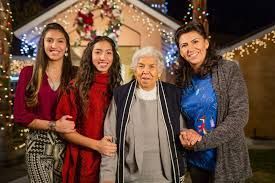Avoid These Mistakes
Are you in the process of searching for an assisted living for yourself or a loved one?
When families and seniors select an assisted living community, it is life-altering. Making the wrong decision can be devastating to the senior.
Our Guiding Light For Seniors guide outlines what to do and what steps to take when researching senior living, but it is alsohelpful to know what not to do.
Choosing a community to match your tastes instead of your parent’s.
Keep your loved one involved in the decision process. Even if they cannot tour with you, be sure you are considering their personality and interests when choosing their future home.
Doing it alone.
When making a decision this big, it’s usually wise to gather multiple perspectives on your senior living options. Get feedback from as many people as possible: family and friends who have gone through the process, your loved one’s care team, a geriatric care manager and a
Obtaining the services of a senior advocate or advisor to help you navigate this journey will make your search easier and much less stressful. This kind of professional can help save you hours of time and stress by narrowing your choices to the places that meet your specific needs. We help families evaluate issues such as amenity preferences, care requirements as well as finances.
Choosing a Community Based on Price.
Sometimes families assume a community is right for their parent or senior loved one because it has a high price or lots of fancy features, only to later realize that this is not an indicator of quality care. Luxury senior living does not necessarily mean quality senior care. A beautiful, modern and upscale facility is just as prone to oversights and errors as a community that looks a little dated. Quality of care is not something you can discern just by driving past a community. The professional senior advocates at Assisted Living Made Simple know the communities in their area and can make the best recommendations for your situation.
Making a decision too quickly.
The choice of an assisted living facility is overwhelming. Some families are so overwhelmed with the choice, that they don’t make a decision at all. On the flip
We recommend that families visit at least multiple communities before making a decision so that you are aware of all the options that are available. Take note of how communities differ from one another and what makes each community unique. Iin order to make a good choice, you need options.
Not reading the fine print.
Assisted living contracts are pretty straightforward, at least compared to other legal documents, but they still can contain confusing legalese or involve fees that aren’t completely apparent. Some families are caught unprepared by price increases that they would have been aware of had they reviewed their contract. Assisted Living Made Simple can help you navigate these sometimes confusing documents.
Different assisted living communities have different pricing structures. Some communities charge one fee for room and board and a separate fee for care. A community may charge one fee per month for the apartment and the meals, and an additional fee per month for personal care. Other communities charge individually for each service or they may rank the level of care that a resident needs on a scale, with care costs based on the level of care the nursing staff determines is needed. Some communities don’t charge a care fee at all, but instead, provide an all-inclusive pricing model whereby resident’s fees are not dependent on the care needed. If there is anything about the contract that concerns you, review it with an elder attorney.
Don’t go it alone. The Senior Advocates of Assisted Living Made Simple are here to help. Call us or stop by our office for more information. Our services are always free to the senior and their family.



